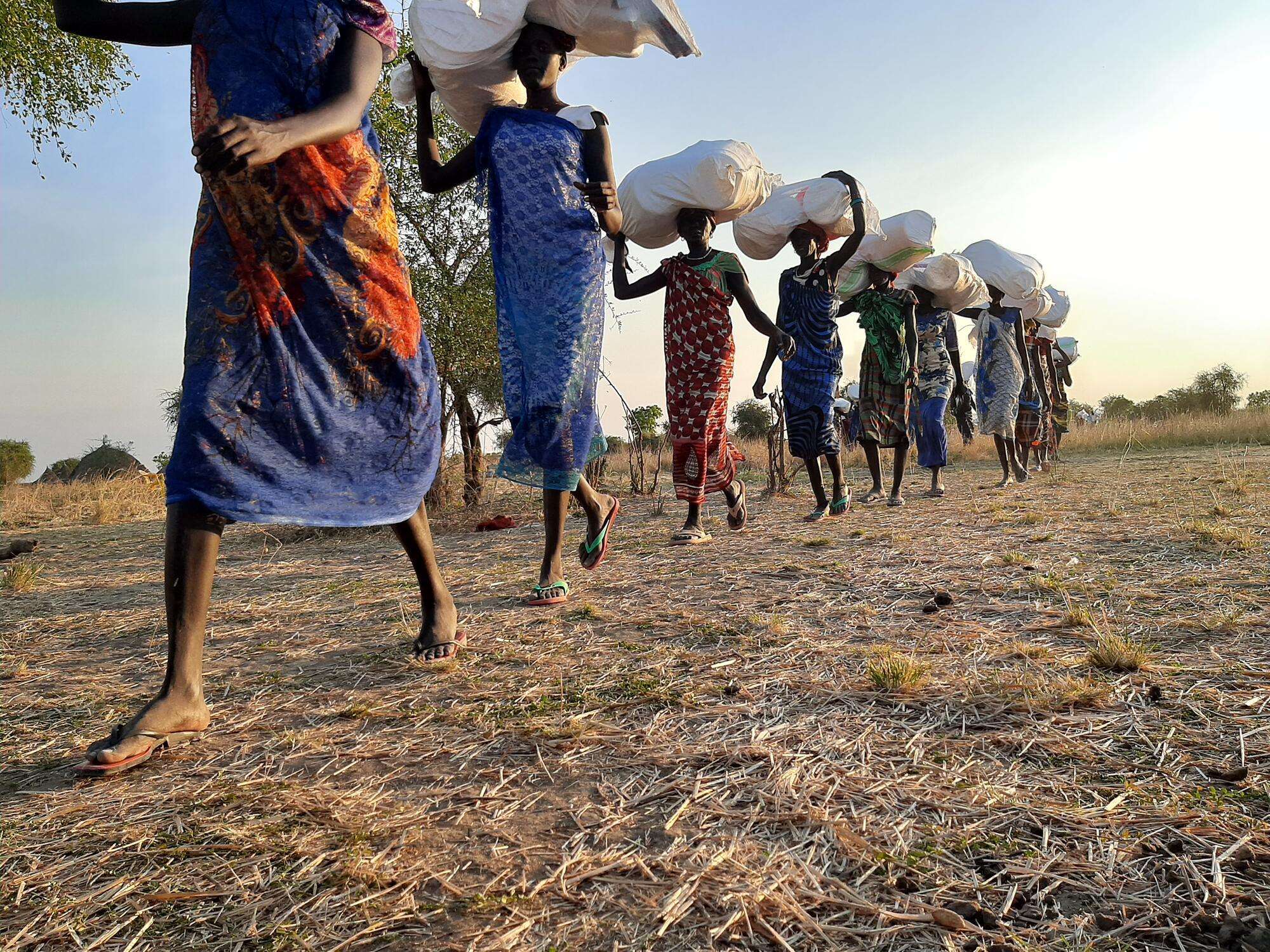JUBA, SOUTH SUDAN/NEW YORK, January 19, 2021—As international donors consider funding for medical services in flood- and conflict-affected areas of Jonglei state, South Sudan, Doctors Without Borders/Médecins Sans Frontières (MSF) is warning that the already dire health needs may deteriorate further, especially in remote areas.
From January 9 to 14, an MSF emergency team treated patients in the remote community of Riang, Jonglei state, where many people lack clean water, latrines and basic health care. Years of protracted flooding and violence have taken a heavy toll on people in the region, increasing medical needs, particularly among young children.
"A worrying 60 percent of the children under the age of five treated in our mobile clinic last week tested positive for malaria; some of them were already in a severe condition," said Roberto Wright, MSF emergency coordinator. "We also saw people suffering from untreated illnesses, including a large number of women with suspected urinary tract infections, which reflects the lack of drinking water."
The MSF team distributed kits containing mosquito nets, blankets, buckets, soap, water purifiers and filters, and plastic sheets and ropes to construct shelters for more than 1,000 families, reducing their exposure to illnesses such as malaria, respiratory infections and waterborne diseases.
Many people lack access to health services in Jonglei state, as in many areas of South Sudan, and the limited services that are available may not continue if funding for other health organizations in Jonglei is not renewed, Wright warned.
"International donors have only ensured funding for other health organizations working in Jonglei until next month, so the situation in the region may quickly deteriorate even further," Wright said.
Food, clean water and latrines are also urgently needed in hard-to-reach areas such as Riang. Surrounded by swamplands, these rural communities face months of floods during the rainy seasons, while in recent years they have experienced widespread violence during dry seasons, which is aggravated by the scarcity of resources such as food and livestock.
Medical services are scarce in remote areas
People living in communities around Riang have to walk more than an hour to reach the nearest free-of-charge health facility, crossing swamps while carrying patients in baskets or on plastic sheets. During the rainy season, the water levels are so high that only those who are able to swim can cross the swamps to see a doctor. Meanwhile, those in need of specialized treatment must be carried to the MSF facility in Lankien, a journey of several days and nights on foot.
Holding a long stick to support her steps, 47-year-old Nyadeng Wal walked alongside her teenage granddaughter to reach the emergency team's mobile clinic in Riang. The girl carried her unconscious two-year-old brother in a basket on her head. "We crossed the swamp during the night to take him to a clinic in Pathai. They gave him medication, but he did not improve," said Wal. MSF's medical team diagnosed him with severe malaria. The family then walked to the MSF facility in Pieri where he was admitted for treatment.
Elizabeth Nyechot Koeng also took her seven-year-old daughter, Nyepay Riek Puor, to the MSF mobile clinic in Riang. The girl has had a large open wound on the side of her head since last September. "Our house in [the village of] Pieth was flooded with around half a meter of water. It rained so heavily that night that the wall collapsed and struck her head," said Koeng. "The whole family had to flee. My husband left with our children and his mother to seek a safer place. Nyepay was bleeding, so I crossed the swamp with a family member to take her to Pulchol. We spent three days in a clinic and then came back to Riang to search for our family." They went several more times to a private clinic in Pathai, where follow-up was available, but the family did not have enough money to finish her treatment.
"The gut-wrenching experience of Nyepay and her family represents the situation across many parts of South Sudan," Wright said. "There is one emergency after another. The protracted flooding, ongoing violence in the region and lack of free health care facilities have severely reduced access to health care, and mean many wounds are not properly treated. Those that do manage to get some treatment often have little follow-up or time to heal."
MSF has been working in South Sudan since 1983. MSF teams currently work in Bentiu, Aweil, Old Fangak, Lankien, Leer, Maban, Mundri, Malakal, Pieri, Yei, Ulang and Juba. MSF is also present in Agok, in the Abyei region. MSF provides medical assistance to people affected by conflict, epidemics, disasters or exclusion from health care.




